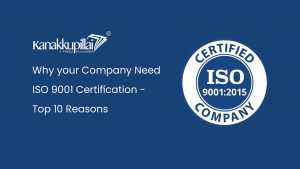![]()
Obtaining an Insurance Broker License: Comprehensive Guide
In the complex landscape of the insurance industry, insurance brokers play a crucial role as intermediaries between insurance providers and clients. These professionals provide valuable assistance in identifying suitable insurance products, negotiating terms, and facilitating the purchase of coverage. To operate legally and ethically, insurance brokers are often required to obtain a license from relevant regulatory authorities. This comprehensive guide explores the intricacies of obtaining an insurance broker license, shedding light on the process, requirements, benefits, and responsibilities associated with this important credential.
Overview of Insurance Broker License
An insurance broker plays a crucial role in procuring insurance policies on behalf of customers, earning commissions from insurance companies for the diverse range of policies they offer. For a company act aspiring to operate as an insurance broker, the initial step involves an application submission to the Insurance Regulatory Development Authority of India (IRDAI) to obtain an insurance broker license.
India enforces specific and well-defined regulations governing insurance brokers. These regulations are established by the Insurance Regulatory and Development Authority of India (IRDAI) and encompass the IRDAI (Insurance Brokers) Regulations of 2018 and the Insurance Regulatory and Development Authority Act of 1999. Consequently, upon successfully obtaining an insurance broker license, applicants are obligated to adhere to the stipulations outlined in the aforementioned laws and regulations. Insurance brokers operate as intermediaries connecting insurance companies with the general public. This intermediary role facilitates the increased sale of policies on behalf of insurance companies.
What is an Insurance Broker License
An Insurance Broker License is a credential that allows an individual or a company to legally operate as an insurance broker. Insurance brokers are intermediaries who help individuals and businesses find suitable insurance policies that meet their specific needs. They work on behalf of their clients, not insurance companies, and provide advice, guidance, and assistance in selecting and purchasing insurance coverage.
Once licensed, insurance brokers can legally represent clients, deal with insurance companies on their behalf, and help clients understand the terms and conditions of various insurance policies. Brokers earn commissions or fees for their services, which are typically paid by insurance companies upon the successful placement of a policy.
Types of Insurance Brokers
Insurance brokers typically fall into three broad categories, which are illustrated below:
- Direct Brokers
Direct brokers are institutions that gather comprehensive client information for insurance purposes. Beyond this, they provide advice regarding suitable insurance options and available policies. Market insights related to the insurance industry are also a part of their purview. Direct brokers execute tasks based on client instructions, which may encompass assisting clients in establishing e-insurance accounts and facilitating premium payments for insurance policies.
- Reinsurance Brokers
Reinsurance brokers undertake functions akin to those of direct brokers but with a focus on reinsurance activities. Managing the reinsurance business is their primary role. Additionally, reinsurance brokers offer products pertinent to reinsurance, including international insurance. Keeping track of reinsurance market data constitutes another aspect of their responsibilities. The reinsurance broker’s role extends to negotiating on behalf of clients.
- Composite Brokers
A composite broker integrates the roles of both direct and reinsurance brokers. In essence, this type of broker encompasses the combined functions of direct and reinsurance brokers, providing a comprehensive range of services.
Reasons for the Need for an Insurance Broker License
Let’s take a look at the key reasons why obtaining an insurance broker license is a crucial step for individuals and entities engaging in the insurance brokerage business.
- Facilitating the Sale of Insurance Products
The insurance broker license is essential to facilitate the sale of a substantial array of insurance products on behalf of insurance businesses.
- Ensuring Legal Compliance
It guarantees adherence to pertinent laws and regulations concerning insurance products, upholding legal standards.
- Monitoring and Market Research
The license empowers the ability to oversee activities and conduct comprehensive market research pertaining to insurance-related offerings.
- Client Representation and Negotiation
An insurance broker license enables the representation of clients and effective negotiation for insurance-related products on their behalf.
- Establishment of Regulatory Oversight
It establishes a central authority to regulate and oversee the operations of the insurance business.
- Client Assurance
The insurance broker license instils confidence in clients regarding the authenticity and credibility of the broker.
- Policy and Premium Negotiation
Through the license, brokers are authorized to negotiate policies and premiums, serving the best interests of their clients.
Who is the Insurance Broker License Regulatory Authority
The oversight of the Insurance Broker License falls under the jurisdiction of the Insurance Regulatory and Development Authority of India (IRDAI). The regulatory framework governing insurance practices is established through the Insurance Act of 1938 and the Insurance Regulatory and Development Act of 1999. Furthermore, the specifics of the Insurance Broker License are governed by the provisions outlined in the IRDAI (Insurance Brokers) Regulations of 2018.
Eligibility Criteria for Acquiring an Insurance Broker License
The acquisition of an Insurance Broker License is subject to specific eligibility criteria set forth by the government, alongside mandatory registration with the Insurance Regulatory and Development Authority of India (IRDAI).
Corporate Structure
- Entities eligible for registration under the Insurance Broker License encompass:
- Companies established under the Companies Act of 2013 or the preceding Company Law of 1956.
- Partnerships enlisted under the Limited Liability Partnership Act of 2008.
- Cooperative societies were registered under the Cooperative Society Act of 1912.
- Other individuals or companies are permitted to engage in business activities related to insurance brokerage.
Capital Requirements
Applicants seeking a Broker’s License must meet the following capital prerequisites:
- Composite Broker: 5 Crore
- Direct Broker: 75 Lakhs
- Re-insurance Broker: 4 Crore
Net Worth Requirements
Applicants are also required to satisfy the stipulated net worth criteria:
- Direct Broker: Net worth not below 50 lakh Rupees.
- Re-insurance Broker and Composite Broker: At least 50% of the minimum capital requirements, contribution, or equivalent.
Deposit Requirements
Before commencing insurance broker operations, each applicant must ensure that a deposit is maintained with a scheduled bank, as follows:
Direct Broker: 10 Lakh Rupees
Re-insurance and Composite Broker: 10% of the minimum capital/contribution. Release of fixed deposits requires prior written permission from the Authority.
Office Space and Facilities
Applicants must provide essential infrastructure, including adequate office space, equipment, skilled personnel, and IT infrastructure, to effectively execute broker activities.
Qualification
At least two qualified individuals with suitable training to function as insurance brokers must be present to conduct broker operations. The principal officer must also possess the necessary qualifications and skills for the role. This individual should hold a key management position within the company, such as a whole-time director, partner, or officer, backed by requisite experience.
Business Purpose
- The primary business objective should explicitly reflect insurance brokering activities in the Articles of Association (AOA) and the Memorandum of Association (MOA).
- Foreign investors are also permitted to participate in the insurance broker business as part of the regulatory framework.
Application Process for Obtaining an Insurance Broker License
The process for applying for and obtaining an Insurance Broker License involves the following steps:
Application Submission:
- The applicant is required to submit an application specifying the type of insurance broker business they intend to operate.
- The application for the license should be made using FORM B as outlined in Schedule I of the regulations.
- Along with the application, the applicant must provide the necessary documents as listed in FORM C of Schedule I.
Fees Payment:
The application for the certificate of registration must be accompanied by the requisite fees, as specified in FORM D of Schedule I of the Insurance Regulations. The fees are as follows:
- Direct Broker: Rs. 25,000
- Re-insurance Broker: Rs. 50,000
- Composite Broker: Rs. 75,000
Mandatory fees for registration are also applicable based on the type of broker:
- Direct Broker: Rs. 50,000 for new application, Rs. 1,00,000 for renewal (3 years)
- Re-insurance Broker: Rs. 1,50,000 for new application, Rs. 3,00,000 for renewal (3 years)
- Composite Broker: Rs. 2,50,000 for new application, Rs. 5,00,000 for renewal (3 years)
All fees must be paid electronically or via demand draft payable to the Insurance Regulatory and Development Authority of India, Hyderabad.
Clarification and Additional Information:
- The authority may request further information from the applicant.
- If requested, the applicant must provide the additional papers within 30 days of acquiring the intimation from the authority.
In-Principal Approval:
- If the authority is satisfied with the submitted information and compliance, the applicant is granted an in-principal approval.
- This approval allows the applicant to fulfil the remaining requirements for obtaining the certificate of registration.
Certificate of Registration Issuance:
- Once the authority verifies that all legal and regulatory requirements are met, the certificate of registration as an Insurance Broker License is granted.
- The certificate is issued on the condition that the applicant will adhere to the prescribed code of conduct.
Additional Registrations:
The broker, upon obtaining the initial certificate of registration, can apply for other registrations under IRDAI, subject to the issuance of the first certificate.
Reapplication After Rejection:
In the event of rejection due to specific circumstances, such as legal changes or decisions by relevant authorities, the applicant may reapply for the license one year after the rejection.
Refusal and Communication:
The authority must communicate any refusal to grant the license within 30 days of the rejection decision.
This procedure outlines the steps involved in applying for and obtaining an Insurance Broker License, ensuring adherence to regulations and ethical standards within the insurance industry.
Requirements for Obtaining an Insurance Broker License
The Insurance Regulatory and Development Authority of India imposes certain prerequisites prior to granting an insurance broker license:
- Compliance with IRDAI Regulations: The insurance broker is obligated to operate their business in strict agreement with the laws put forth by the IRDAI.
- Accuracy of Information: Any instances of the insurance broker providing false or deceptive information pertaining to their business details must be promptly reported to the regulatory authority.
- Timely Grievance Resolution: The insurance broker is mandated to address client grievances within a 14-day timeframe from the date of receiving the complaint. Additionally, the broker is required to maintain a record of customer complaints.
- Adherence to IRDAI Guidelines: The insurance broker must conduct their business activities in a manner consistent with the guidelines and directives prescribed by the IRDAI.
- Maintenance of Financial Records: The insurance broker is liable for keeping precise and up-to-date books of accounts reflecting their financial transactions.
- Prohibition of Multi-Level Marketing and Solicitation: Engaging in multi-level marketing or solicitation activities is prohibited for insurance brokers, ensuring fair and transparent business practices.
Required Documentation for Obtaining an Insurance Broker License
The process of securing an Insurance Broker License necessitates the submission of various documents and information as follows:
- Relevant Information Submission: Furnishing the necessary details as outlined in Schedule I – Form B is a prerequisite.
- Memorandum and Articles of Association: Providing copies of the Memorandum of Association and Articles of Association, adhering to the stipulations of the Companies Act of 2013.
- Fee Remittance: Payment of the applicable fee corresponding to the specific category of the insurance broker license.
- Employee Training: Ensuring that employees embarking on an insurance broker venture have undergone the requisite training.
- Principal Officer Information: Completion of Schedule I – Form F with pertinent data pertaining to the principal officer.
- Fit and Proper Certification: Obtaining the Fit and Proper certification as mandated in Schedule I – Form G.
- Disqualification Declaration: Submission of a declaration by key management executives, principal officers, and directors of the company affirming the absence of any disqualifications as per the Act.
- Details of Leadership and Personnel: Furnishing comprehensive particulars of Promoters, Partners, Directors, and Key Management Personnel via the prescribed Form.
- Qualified Personnel Listing: Inclusion of a list, as per Schedule I – Form F, containing the names of qualified individuals responsible for managing and procuring brokerage business, along with their qualifications.
- Statutory Auditors and Principal Bankers Information: Providing details about statutory auditors and Principal Bankers, including the Bank Account Number of the applicant.
- Infrastructure Information: Supplying information regarding infrastructure, including IT facilities, supported by corroborative evidence like ownership or lease agreements to validate the availability of sufficient space for conducting brokerage operations.
For expert assistance in obtaining your Insurance Broker License and navigating the intricate process seamlessly, look no further than Kanakkupillai. Our team of experts specializes in guiding you through every step, ensuring compliance with regulatory requirements and a successful application process. Contact Kanakkupillai today to embark on your journey towards becoming a licensed insurance broker and establishing a thriving business within the insurance industry. Your path to success starts with our dedicated support – reach out to Kanakkupillai now!





